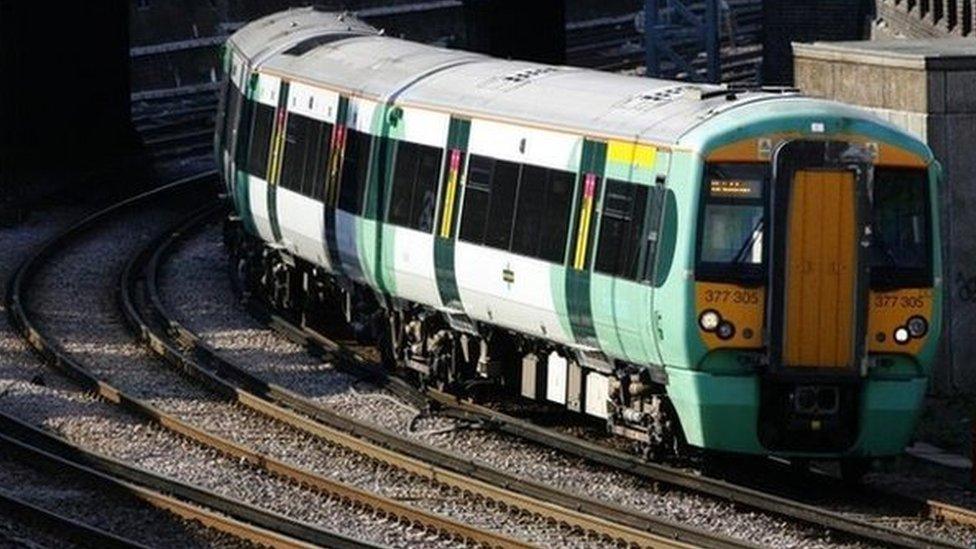Passengers disrupted over Southern conductors' strike
- Published
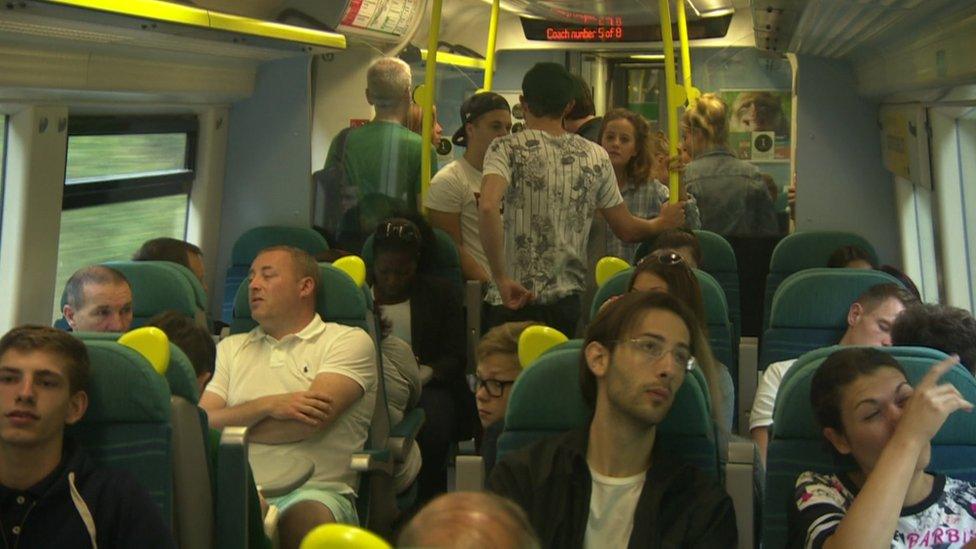
Southern trains operate in Sussex, Surrey and parts of London, Kent and Hampshire
A strike by conductors on Southern railway has begun with passengers facing more than 24 hours of disruption.
The Rail, Maritime and Transport (RMT) union claimed there was "rock-solid" support from members in a row over their role and driver-only trains.
Southern said it would operate a planned revised timetable.
About 700 services are cancelled over two days, mainly in Sussex and east Surrey.
Several routes, external have no service at all and passengers have been warned to expect queues at stations.
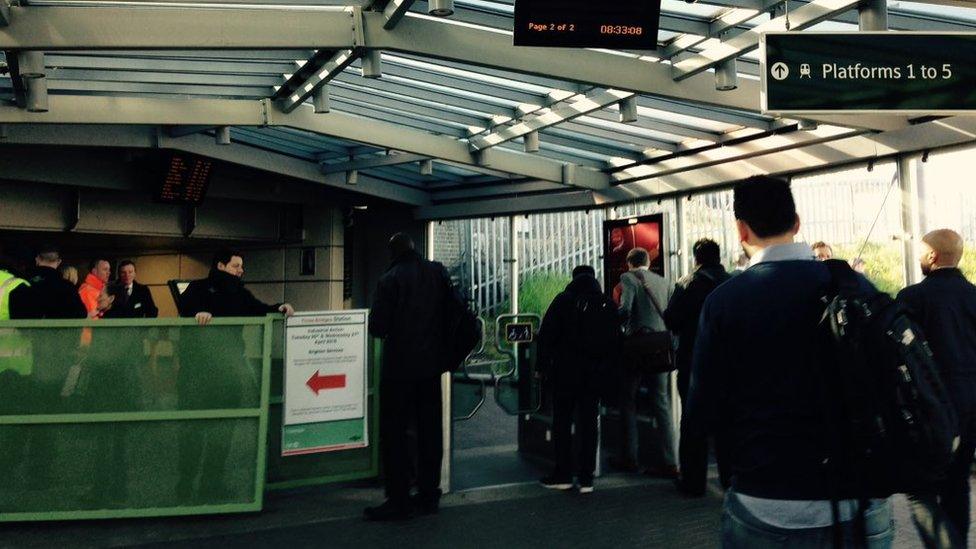
Southern has erected barriers to operate queuing systems at key stations
The strike is due to end on Wednesday at 11:00 BST but Southern said services would not return to normal until Thursday.
Two further 24-hour stoppages are planned at the same time on 10 and 12 May.
In a message to passengers, Southern said: "You may have a long wait before you are able to board a train. Unfortunately we cannot guarantee to get you to your destination."

Southern rail strike: Affected routes
The Brighton to London line has a reduced service
A significantly reduced service on the Bognor Regis/Littlehampton-Three Bridges, Chichester-Brighton, Eastbourne-Brighton, Gatwick-Purley and East Grinstead-East Croydon lines
No Southern trains at all on the Tonbridge-Redhill, Dorking-Horsham, Oxted-Uckfield, Eastbourne-Ashford International and Lewes-Seaford lines

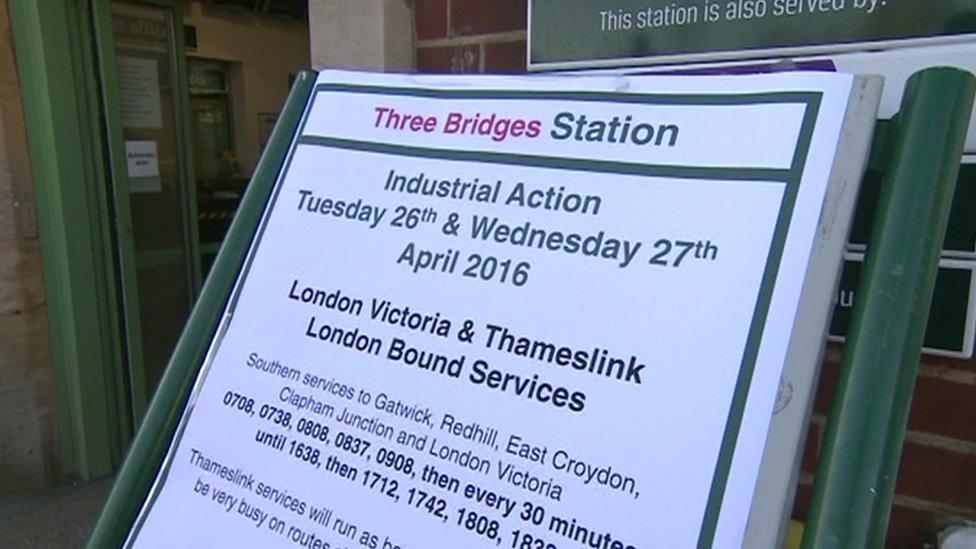
About 700 trains have been cancelled on Tuesday in the revised timetable
Southern, which is owned by Govia Thameslink Railway (GTR) and serves Sussex, Surrey and parts of London, Kent and Hampshire, said the changes would make conductors more visible while drivers would operate doors.
It said there would be no job losses or cuts in salary.
Dyan Crowther, chief operating officer for GTR, insisted driver-only operation was safe: "Over 60% of our services already operate from a driver-only perspective. Our rail regulator, our safety regulator also says it is safe".
She said Southern's new rolling stock had CCTV in drivers' cabs so the role of conductors would "evolve" to become "on-board supervisors".
The Conservative MP for Wealden, Nus Ghani, told BBC Sussex: "I do not remember the last time I got on a train and there was someone to help me physically, on or off."
But Paul Cox, RMT organiser, said guards knew how to stop oncoming trains and "save lives, in the event of an emergency or accident if the driver is incapacitated".
He said under the proposed changes, conductors would be "train-hopping, because you can not cover more trains with fewer people".
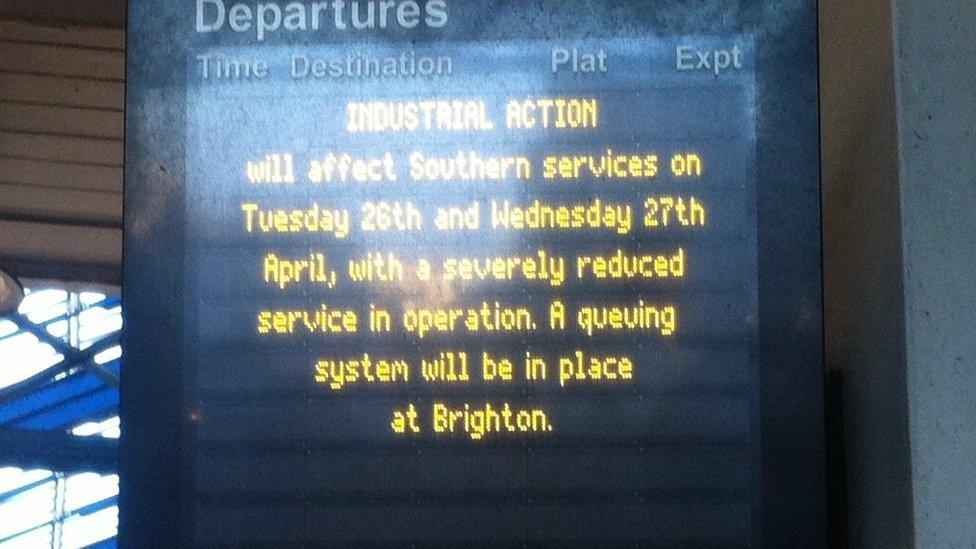
Rail passengers at Brighton were warned to expect queues
- Published19 April 2016
